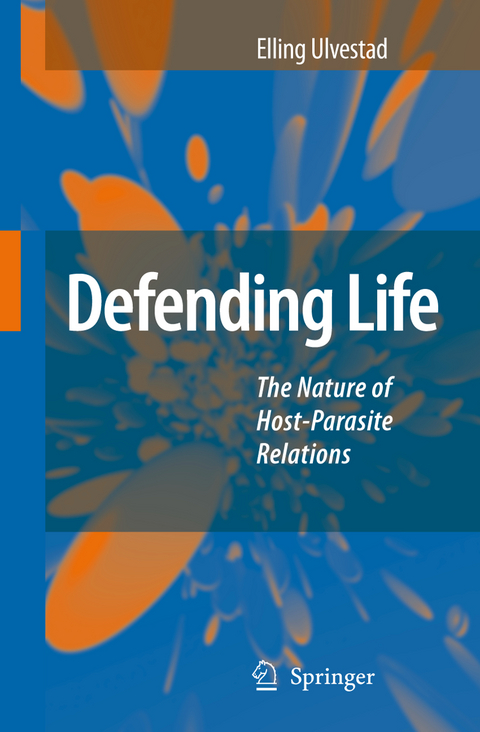
Defending Life
The Nature of Host-Parasite Relations
Seiten
2007
Springer-Verlag New York Inc.
978-1-4020-5675-8 (ISBN)
Springer-Verlag New York Inc.
978-1-4020-5675-8 (ISBN)
"The book is highly recommended to those who want to dig into the scientific challenges involved in understanding the complex demands and tasks that nature had bestowed the immune system. "
Professor Roland Jonsson
The Gade Institute, University of Bergen, Norway.
Defending Life discusses the relationship between hosts and parasites. A major contention of the book is that the immune system depends ontologically on the ecosystem in which it is embedded; it would not have the features it has if it was not related in one way or other to parasitic agents and to the host’s own cells and tissues. To sustain the argument, life is investigated at all layers – from molecules up through cells, organisms and ecosystems. Together with the inverse course, which goes from ecological contingencies down to gene-expression profiles, the approach facilitates an advanced understanding of immunocompetence as well as its converse, immunoincompetence. The emphasis on analytical abstractions, coherent patterns and generative mechanisms makes possible the distinction between genuine causality and coincidental associations, and thus increases the understanding of why we observe what we observe. The book contains detailed descriptions of the immune system and the microbial world as well as methodological and conceptual clarifications.
"The book is highly recommended to those who want to dig into the scientific challenges involved in understanding the complex demands and tasks that nature had bestowed the immune system. "
Professor Roland Jonsson
The Gade Institute, University of Bergen, Norway.
Professor Roland Jonsson
The Gade Institute, University of Bergen, Norway.
Defending Life discusses the relationship between hosts and parasites. A major contention of the book is that the immune system depends ontologically on the ecosystem in which it is embedded; it would not have the features it has if it was not related in one way or other to parasitic agents and to the host’s own cells and tissues. To sustain the argument, life is investigated at all layers – from molecules up through cells, organisms and ecosystems. Together with the inverse course, which goes from ecological contingencies down to gene-expression profiles, the approach facilitates an advanced understanding of immunocompetence as well as its converse, immunoincompetence. The emphasis on analytical abstractions, coherent patterns and generative mechanisms makes possible the distinction between genuine causality and coincidental associations, and thus increases the understanding of why we observe what we observe. The book contains detailed descriptions of the immune system and the microbial world as well as methodological and conceptual clarifications.
"The book is highly recommended to those who want to dig into the scientific challenges involved in understanding the complex demands and tasks that nature had bestowed the immune system. "
Professor Roland Jonsson
The Gade Institute, University of Bergen, Norway.
Tracks of thought.- Immunobiology.- Adaptive plasticity.- Natura naturans.- Disabled defences.
| Zusatzinfo | XIX, 241 p. |
|---|---|
| Verlagsort | New York, NY |
| Sprache | englisch |
| Maße | 155 x 235 mm |
| Themenwelt | Medizin / Pharmazie ► Medizinische Fachgebiete ► Mikrobiologie / Infektologie / Reisemedizin |
| Studium ► Querschnittsbereiche ► Infektiologie / Immunologie | |
| Naturwissenschaften ► Biologie ► Mikrobiologie / Immunologie | |
| Naturwissenschaften ► Biologie ► Ökologie / Naturschutz | |
| ISBN-10 | 1-4020-5675-3 / 1402056753 |
| ISBN-13 | 978-1-4020-5675-8 / 9781402056758 |
| Zustand | Neuware |
| Haben Sie eine Frage zum Produkt? |
Mehr entdecken
aus dem Bereich
aus dem Bereich
Buch | Softcover (2023)
Lehmanns Media (Verlag)
CHF 27,90


